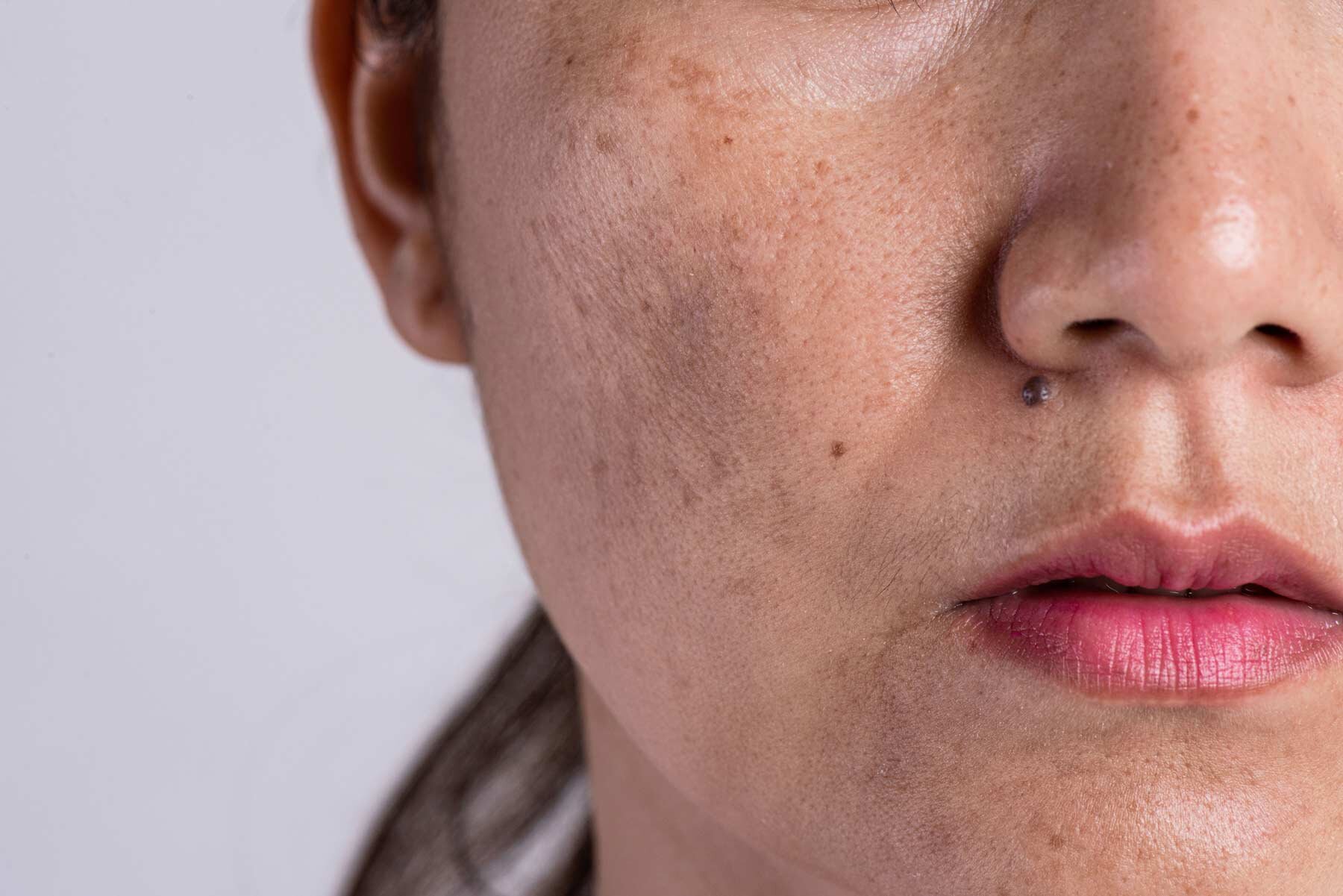
Melasma
Melasma is a common skin condition that causes dark, discolored patches on the face. It is most commonly found on the cheeks, nose, forehead, and upper lip, and is often symmetrical, meaning it affects both sides of the face. Melasma is more common in women, especially during pregnancy or when taking certain medications such as birth control pills.
Melasma is caused by an excess of pigment in the skin, and is thought to be triggered by a combination of factors, including sun exposure, hormonal changes, and genetics. It is more common in people with darker skin tones, and is often more difficult to treat in these individuals.
Symptoms of melasma may include dark, discolored patches on the face that may be lighter or darker than the surrounding skin. The patches may be raised or flat and may be itchy or tender in some cases. Melasma is generally benign (noncancerous) and does not pose any medical risks, but it can be cosmetically distressing for some people.
Treatment for melasma typically involves a combination of sun protection, skin lightening agents, and chemical peels or laser treatments. Sun protection is an important aspect of melasma treatment, as exposure to UV radiation can worsen the condition. This may include wearing protective clothing and using a broad-spectrum sunscreen with an SPF of 30 or higher on a daily basis.
Skin lightening agents, such as hydroquinone, may be prescribed to help reduce the appearance of melasma. These agents work by inhibiting the production of pigment in the skin and may be used in conjunction with other treatments. Chemical peels or laser treatments may also be used to help improve the appearance of melasma.
In addition to these treatments, there are several steps you can take to help manage melasma:
Avoid sun exposure, especially between the hours of 10 a.m. and 2 p.m. when the sun is strongest
Wear a wide-brimmed hat and sunglasses to protect your face and eyes from the sun
Use a broad-spectrum sunscreen with an SPF of 30 or higher on a daily basis, even on cloudy days
Avoid heat styling tools such as blow dryers, flat irons, and curling irons
Avoid using harsh skin care products or exfoliating agents
Eat a healthy, balanced diet and stay hydrated to support healthy skin
By following these precautions and seeking treatment as needed, you can help to manage melasma and improve the appearance of your skin. If you are concerned about melasma or have any other changes in your skin, it is important to see a healthcare provider for evaluation and treatment.

